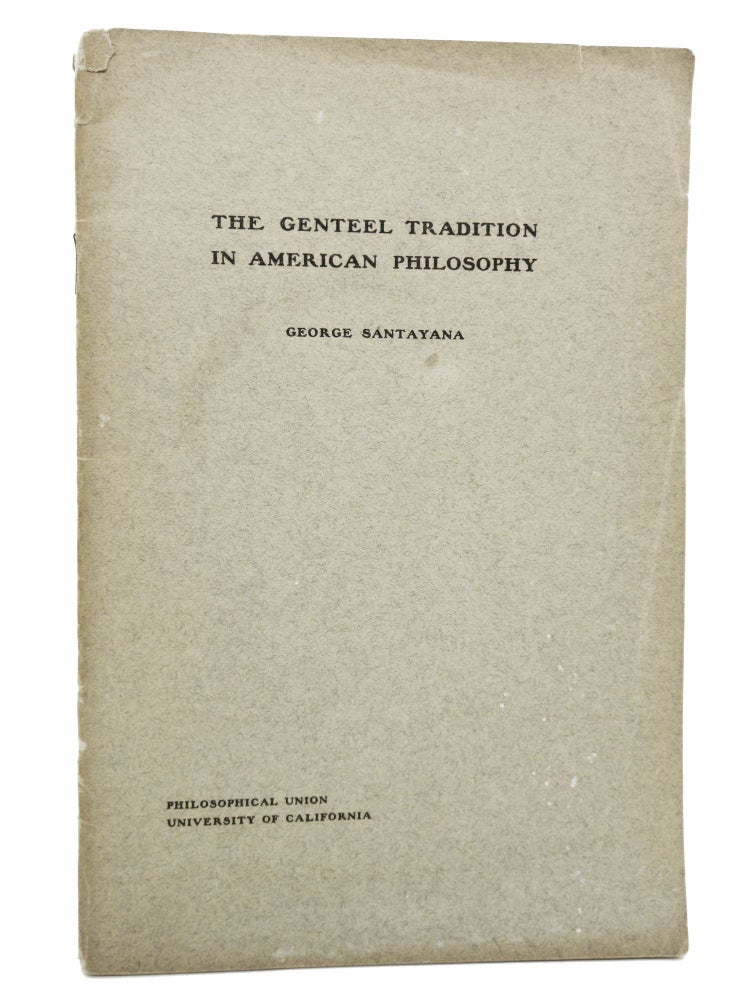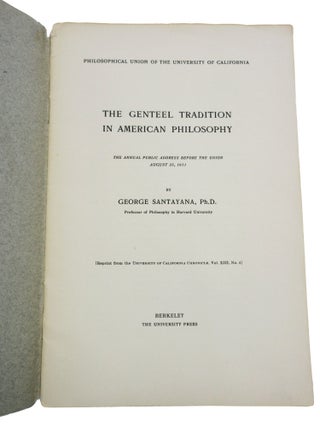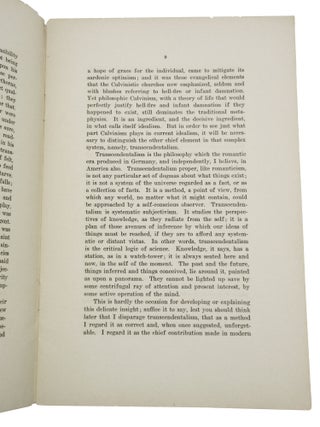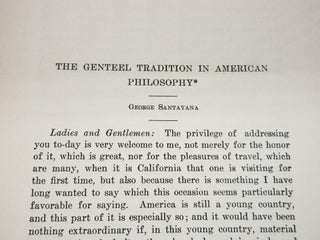The Genteel Tradition in American Philosophy: The Annual Public Address Before the Union, August 25, 1911
Berkeley, California: The University Press: Philosophical Union of the University of California offprint from the University of California Chronicle, Volume XIII, No. 4, 1911. Offprint. Pamphlet. Stapled wraps, 5.75 x 8.75 inches, 26 pp. Faint spotting to wrappers; crease to front wrapper with several half-inch closed tears to head of wrappers and title page; some separation of wrappers along spine; discreet, one-inch tape repair to head of front wrapper (verso); toning to wrappers and leaves; pages bright and unmarked. Very good. Item #111
Original offprint setting forth George Santayana’s (1863–1952) remarks before the Philosophical Union of the University of California on August 25, 1911 on “The Genteel Tradition in American Philosophy.” In what would become his farewell address to America, Santayana analyzes American culture and tradition at the turn of the twentieth century, presenting America with a vision of itself that would, in the decades ahead, begin to fade away before the advent of democratic individualism and cultural diversity. Santayana observes in his lecture that America’s cultural and intellectual traditions have been largely shaped and governed by an elite, meritocratic class of New England intellectuals (poets, novelists, critics, academics and publishers) who, since the close of the Civil War, have largely determined the moral, aesthetic, and social standards of the country. This genteel tradition was perhaps most prominent at Harvard University where he served as a professor of philosophy from 1889–1912, educating the likes of T. S. Eliot, Robert Frost, Gertrude Stein, Walter Lippmann, and other future American luminaries. The Harvard professoriate (in particular, the poets in residence), together with much of the New England academic elite, were determined to protect America’s fledgling high culture from the corrupting and massifying effects of an increasingly industrial world. As a result, this genteel tradition strove to preserve the social and intellectual hierarchies that characterized late-nineteenth century America while scorning (and censoring) American provincialism. Before departing the United States for good in 1911, Santayana delivered his lecture before the Philosophical Union in order to criticize the genteel tradition by arguing that it had created a rift between the American intellect and will. He argued that America should reject such obsolete transcendentalism in favor of the practical, commercial, and modern character of authentic twentieth-century America. Uncommon original pamphlet setting forth Santayana’s final lecture to America as he delivered it in the summer of 1911.
Price: $125.00





